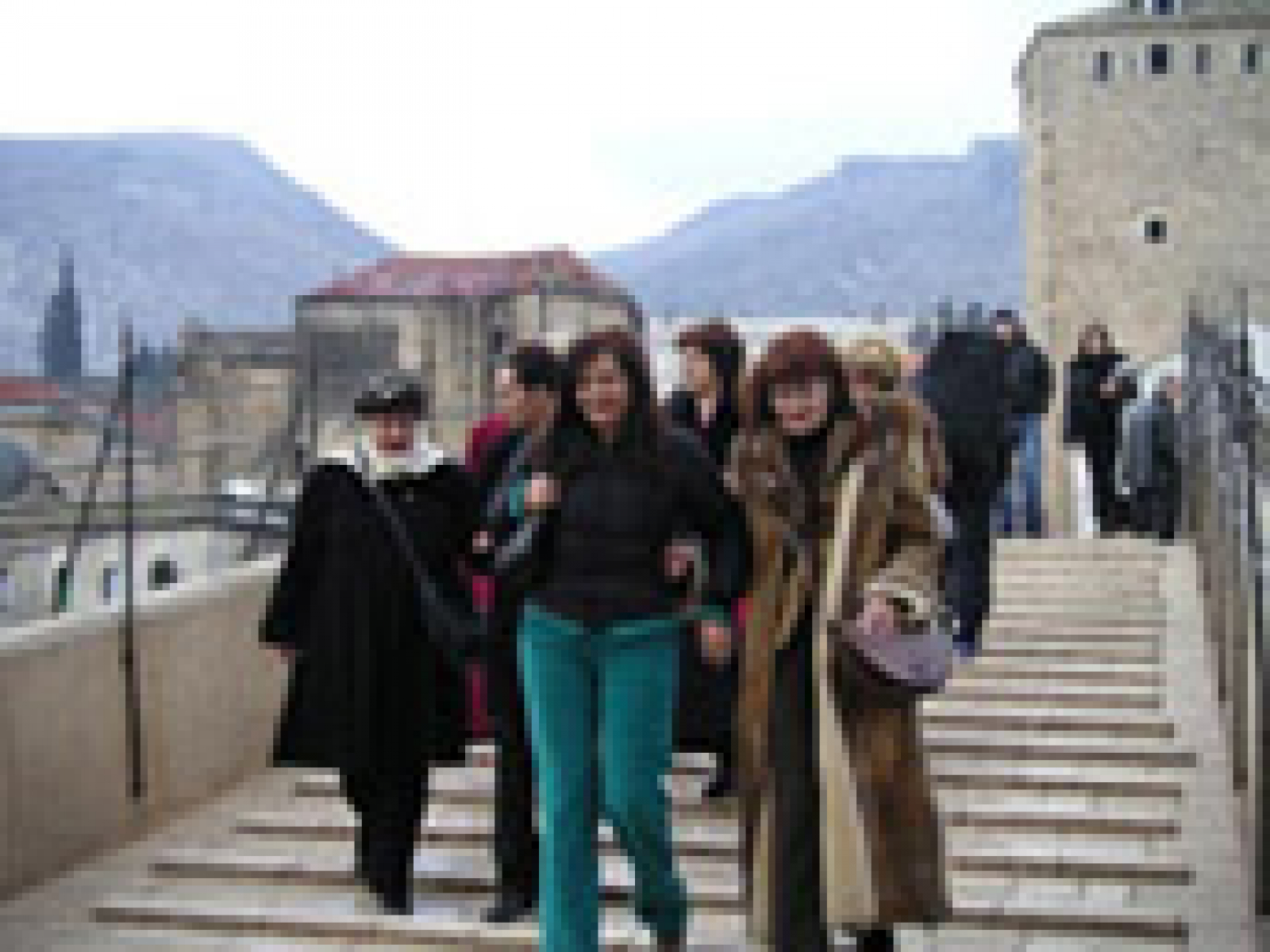
SHARE
Women in the war-torn city of Mostar, Bosnia-Herzegovina have come together to build an advocacy network that is one of the few examples of multiethnic political cooperation in a country fractured by seemingly insurmountable ethnic divides.
The newly formed Mostar Women’s Citizen Initiative draws together women—political activists, civic leaders, ordinary citizens—to address common issues without regard for the ethnic affiliation of its members or those it assists. The Initiative represents a profound attempt to transcend historic ethnic divisions in a city where teens enter its one high school through two different entry doors, learn on two separate floors and study two curricula.
The second annual Madeleine K. Albright Grant recognizes this unprecedented effort in an ancient city whose historic Stari Most bridge once symbolized centuries of multi-ethnic harmony, but could not withstand the ravages of modern-day prejudice and bombardment.
The work of these women is about using the tools of democracy—community organizing, public outreach, petitioning government—and the values of democracy—tolerance, pluralism and compromise—to bridge the city’s sharp divisions, and solve pressing community wide problems.
Today, more than a decade after the Dayton Peace Accords quelled the violence, Mostar remains physically divided, with Croats and Muslim Bosniaks living on either side of the restored bridge, which reopened in 2004. Survey research revealed that the harsh reality of life in a divided city was, itself, the problem most often cited by women in Mostar.
These women witnessed first-hand how problems go unsolved when ethnic affiliation dominates social relationships, education, employment and governance, and they decided to make the political process work for them. They have developed the tools to solve complex problems, to work collectively and to become leaders in their own right. They have gone on to develop, coordinate, and launch advocacy initiatives at the local level including a successful effort to amend the municipal maternity law to better protect female workers. The cooperative work of these women exemplifies a larger message to put aside harmful differences and choose the political process to build better lives for themselves and their community. The Madeleine K. Albright Grant will allow the Initiative to strengthen its organizational capacity and expand efforts to promote public participation in the policymaking process.
Watch a documentary, “Building Bridges,” about the Mostar Women’s Citizen Initiative:
–
Published on Mar. 23, 2006


